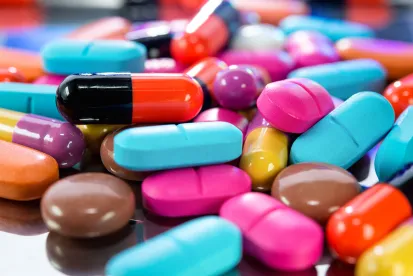On Thursday, October 26, 2017, President Donald Trump declared the opioid crisis a national health emergency.
What is the Opioid Epidemic?
From 2000 to 2015, more than half a million people died of drug overdoses across the country and most of those deaths involved opioids, according to the Centers for Disease Control and Prevention (CDC). The CDC estimates that 64,000 people died from drug overdoses in 2016 alone.
The CDC reports that overdoses from prescription opioids are a driving factor in the 15-year increase in opioid overdose deaths. The number of prescription opioids sold to pharmacies, hospitals, and doctors’ offices almost quadrupled from 1999 to 2010. In turn, deaths from prescription opioids, including oxycodone, hydrocodone, and methadone, have more than quadrupled since 1999.
Opioid deaths are still rising in many states, according to the CDC. In New Jersey, there were 2,053 opioid-related deaths from March 2016 to March 2017, up from 1,509 in the previous year. In Pennsylvania, there were 4,923 opioid-related deaths from March 2016 to March 2017, up from 3,526 in the previous year.
Drug overdoses now kill more people than gun homicides and car crashes combined, according to an interim report by the President’s Commission on Combating Drug Addiction and the Opioid Crisis. President Trump convened the commission shortly after taking office. Among other recommendations, the commission recommended that the president declare a national emergency either under the Stafford Act or the Public Health Service Act. He chose the latter option.
What Does the Declaration of a Public Health Emergency Mean?
The declaration of a public health emergency under the Public Health Service Act does not trigger additional federal funding for the crisis, according to White House officials. Instead, the order will expand access to telemedicine in rural areas, lessen delays in dispensing grant money, and shift some federal grants toward combating the opioid crisis. Although there will be no additional federal funding, according to officials, the administration will reportedly work with Congress to fund the Public Health Emergency fund.
The expansion of telemedicine services will increase the availability of medical treatment in rural areas, which are underserved by doctors and have been deeply affected by the opioid crisis, including areas of West Virginia.
According to the U.S. Department of Health and Human Services (HHS), grant money helps states target specific approaches to the opioid crisis. HHS prioritizes five strategies: strengthening public health oversight, advancing pain management; improving access to treatment and recovery services; increasing availability and distribution of overdose-reversing drugs such as naloxone (Narcan) – a drug that counteracts the effects of opioid overdoses; and supporting research. Many first responders carry Narcan or an equivalent in a front-line battle against opioid overdose deaths. Declaring a public health emergency gives the secretary of HHS the power to increase the availability of Naloxone and to seek price reductions for the drug.




 />i
/>i